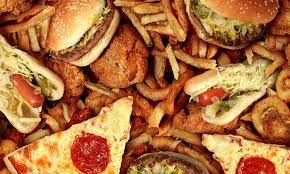Can an Unhealthy Diet Cause Hair Loss?
Hair loss is most commonly caused by genetic factors, with androgenic alopecia (male or female pattern baldness) being at the most common, and is largely hereditary.
But diet and nutrition can also contribute to increased hair loss, mainly down to the fact that the hair is starved of specific nutrients. When you don't get the vitamins, minerals, and other nutrients that your body needs from your diet, it can cause the hair to fall out. For instance, too little protein in your diet can damage healthy hair, and inhibit your body's ability to build new hair follicles.
Here are some key nutrients that are needed for healthy hair growth. Many of these nutrients cannot be found in most junk foods, which is why it is essential to have a healthy diet for better hair growth.
Zinc
Zinc is a mineral that helps with immune function, protein synthesis, and cellular division. Zinc plays a crucial role for hair follicle function, and helps protect against hair follicle shrinkage and slowed growth. It can also help promote hair follicle recovery.
A zinc deficiency can cause hair to fall out, and studies show that people with certain hair loss conditions tend to have lower zinc levels than people without hair loss.
The recommended daily amount of zinc is 8 milligrams (mg) for women and 11 mg for adult men.
Iron
The median dietary iron intake in pregnant women is 14.7 mg/day
Biotin (Vitamin B7)
Biotinidase deficiency (BTD) is the most common cause of biotin deficiency. BTD is a rare inherited disorder where the body is not able to use biotin and leads to biotin deficiency. It is caused by a mutation in the BTD gene.
Biotin can be found in foods like organ meats, eggs, fish, meat, seeds, nuts, and certain vegetables like sweet potatoes. To prevent a biotin deficiency, the daily recommended adult intake is 30 to 100 micrograms (mcg) per day.
Vitamin D
Vitamin D can be found in foods like oily fish, red meat, liver, egg yolks, butter and mushrooms. The daily recommended vitamin D intake is around 15 mcg for adults.
Others
Other vitamin deficiencies that can cause hair loss are; Vitamin A, Vitamin F, Vitamin E, Folic Acid, Copper, and Choline.
It is best to talk to your doctor before starting a vitamin supplement to make sure it will not interfere with any current medications or conditions. The best place to start is with a change in diet and making sure your body has everything it needs to function at its best.
Multivitamin hair supplements are also a good source of vitamins that can help slow down hair loss, and promote the function of healthy hair growth.









Post a Comment